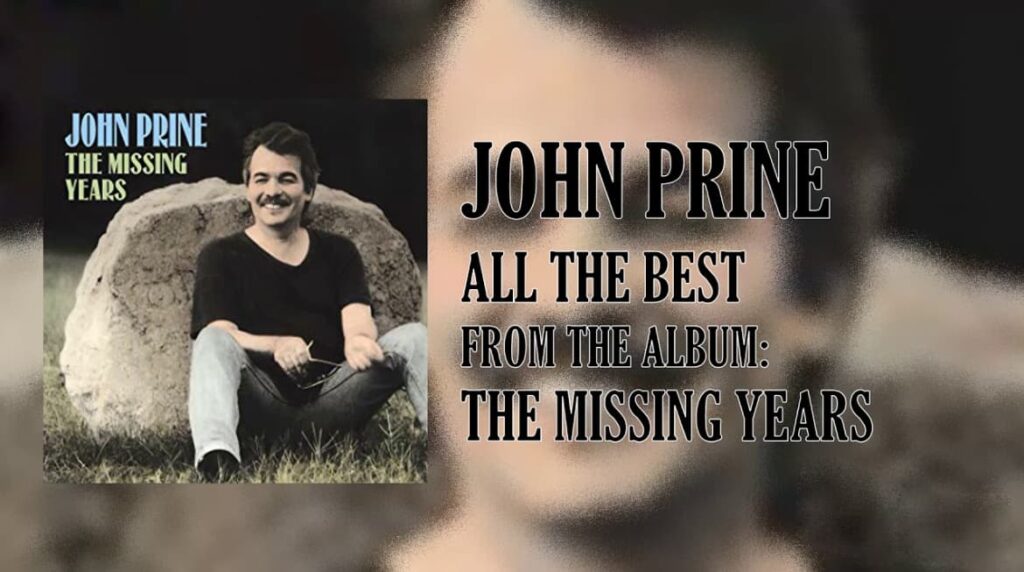
A Post-Breakup Benediction That’s Equal Parts Sincere Blessing and Wry Warning
Oh, to be young and to have known a heart cracked wide open. There’s a particular sting, a unique blend of sorrow and self-aware exasperation that only an honest break-up can deliver, and nobody—nobody—captured that feeling with the plain-spoken genius of John Prine. His song “All the Best,” a quiet masterpiece nestled in his critically acclaimed 1991 album, The Missing Years, isn’t just a farewell; it’s a profound, almost unbearably human benediction.
For a man whose career was defined by his inability to write a bad song, it’s perhaps not a shock that the record this track hails from earned such high praise. The Missing Years marked a triumphant return to form for Prine, snagging the Grammy Award for Best Contemporary Folk Album. While the album itself charted, peaking at number 170 on the US Billboard 200, “All the Best” wasn’t a charting single in the traditional sense. But a John Prine song never needed the top forty to find its way into the soul of a listener. Its influence is measured not in weeks on a chart, but in the number of times it’s been quietly played on a porch swing, in a lonely kitchen, or late at night on a stereo when the memories won’t stop flooding back.
The story behind the song is typical Prine: deceptively simple and deeply personal. It was written in the wake of his second divorce, during a time of necessary reflection and rebuilding, which ultimately led to the creation of The Missing Years—his first album of new material in over six years. That deep well of personal experience is what makes the lyrics so resonant. The song’s meaning centers on the bittersweet, contradictory feelings of a person saying goodbye to an ex-lover. On the surface, the narrator offers a wish for “love and happiness”—the polite, expected civility of a final goodbye. But the deeper, more painful truth of his affection is revealed in the cautionary wish: “I wish you don’t / Do like I do / And never fall in love / With someone like you.” It’s a marvelous turn of phrase, suggesting that to be in love with the person he is saying goodbye to is to experience a dizzying, destructive, yet utterly consuming emotional connection.
The song is structured around two of the most achingly beautiful and unforgettable metaphors in modern songwriting. First, the comparison of love to a discarded Christmas card: “I guess that love / Is like a Christmas card / You decorate a tree / You throw it in the yard / It decays and dies / And the snowmen melt.” It’s an analogy that cuts straight to the core of fleeting beauty and inevitable decay, perfectly capturing the end of a relationship. The second, and perhaps the song’s emotional climax, is the image of the jilted lover acting like a child: “Cause if you fell / just like I did / You’d probably walk around the block / like a little kid / But kids don’t know – they can only guess / How hard it is – to wish you happiness.” This image of a grown man, undone by heartache, reduced to aimless, childish wandering, is devastatingly potent and instantly relatable to anyone who’s felt utterly lost after a breakup.
For those of us who grew up with the folk and country-folk troubadours of the 70s and 80s, “All the Best” is like catching up with an old friend who’s finally telling you the whole, unvarnished truth about his life. Prine’s voice, which had gained a marvelous gravelly texture over the years, delivers the lines with a warmth and wisdom that makes the listener feel like they’re the only one in the room. This song doesn’t just ask you to listen; it asks you to remember, to reflect, and to feel the sting of what could have been, all while acknowledging that, messy as it was, it was love.